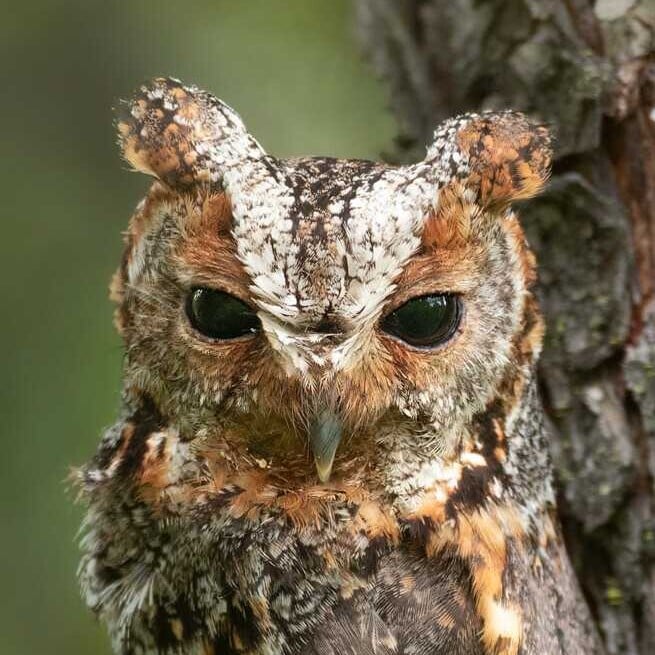Enjoy this photo dump of some of the patients we’ve seen this year. All of these owls have been released and we still have four in our care. This year, they’ve come to us for window and auto collisions, gunshots, fishing line, and electricity. Let’s appreciate the beauty of these regal raptors and do our part in helping them stay wild.


Saw this got a downvote, so there may be a misunderstanding worth discussing.
There are 2 types of rodenticide, 1st generation and 2nd.
1st Gen requires repeated consumption by a rodent to be lethal. They are typically excreted after a week.
2nd Gen are lethal in a single dose, and the chemicals persist in organs.
Any poisoned rodent is going to be much easier for a predator to catch. With 1st gen poisons, they have a chance to eventually get rid of the poison from eating poisoned rodents. By eating rodents poisoned with 2nd gen poisons, they lose the ability to have the poison eventually work its way out of their system, and it instead accumulates over extended periods of time.
As long as anyone uses poison as a method of animal control, there will be secondary poisonings of unintended animals. By eliminating the use of 2nd gen poisons, those animals have a much better chance of survival.
Having watched raptors suffering lethal doses of poison has not been pleasant, and there are many articles about them taking piles of poisoned rodents back to the nest and the whole nest dies.
So my comment was made with a wish they could handle being unintentionally poisoned, because I have to read so many stories of this stuff as it is now.
Ugh that sucks. Instead of expecting owls to adapt we should not used such harsh poison
Rules are (were?) slowly changing. They are getting banned in some places like California and British Columbia, though that BC link highlights even with “bans,” there are many loopholes in much of the legislation. While it is typically banned for private consumers, professional post control companies and anything deemed an “essential service” is allowed to use them, in amounts I’m sure dwarf what home use would use.
Essentially every animal rescue lobbies for bans, and things like Flaco having poisoning being at least somewhat responsible for his death brings public attention to the unintended effects. Hopefully more and more people will get on board and we will eventually be rid of them.